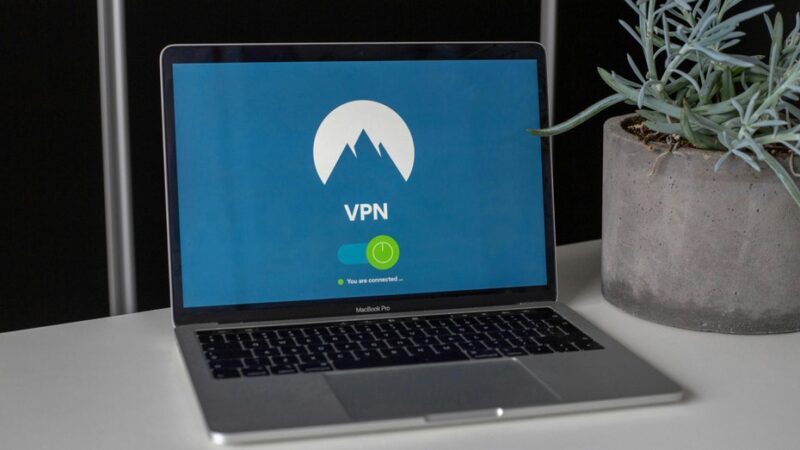Do You Really Need a VPN for Your Home Internet? Discover 10 Compelling Reasons Why You Should

In today’s digital age, many of us have experienced that nagging feeling of unease while browsing online—wondering who may be tracking our activities. If you’ve found yourself in this situation, it’s time to consider a powerful tool that can enhance your online safety: a Virtual Private Network (VPN). Whether you’re working remotely, binge-watching your favorite series, or simply surfing the web, a VPN provides essential security and privacy. Let’s explore the top ten reasons why having a VPN at home is a wise decision.
Understanding the Basics of a VPN
A VPN encrypts your internet traffic and routes it through a server located in a different geographical location. This means that when you connect to the internet via a VPN, websites and online services will see the VPN server’s IP address rather than your own. As a result, only your Internet Service Provider (ISP) will be aware that you’re using a VPN, while all your browsing activity remains concealed from other online entities.
The Importance of VPNs Even at Home
While your home internet connection is generally more secure than public Wi-Fi, it doesn’t guarantee complete privacy. Here are ten persuasive reasons to consider incorporating a VPN into your home network.
Enhanced Security for Online Communication
Communication platforms vary widely in their security measures. While some services like WhatsApp employ end-to-end encryption, others do not. By using a VPN with any messaging app, you can ensure that all your connection and messaging data between your device and the VPN server are fully encrypted, safeguarding your conversations from potential eavesdroppers.
Access to Geo-Restricted Content
Many online platforms, including Netflix and various social media sites, restrict content based on geographic locations. A VPN allows you to appear as if you are accessing the internet from another region, enabling you to bypass these restrictions and enjoy a broader range of content.
Preventing Bandwidth Throttling
ISPs sometimes throttle bandwidth based on the type of content being accessed, particularly during peak times. By using a VPN, you can obscure your online activities from your ISP, preventing them from slowing down your connection based on your online usage patterns.
Privacy from Network Administrators
If you’re concerned about the Wi-Fi network administrators at your workplace, school, or other public spaces snooping on your browsing history, a VPN can help maintain your privacy. Even at home, a VPN keeps your online activity hidden from other household members.
Protection Against Cyber Attacks
Cybercriminals often target networks to steal personal information. This is particularly true on unsecured public Wi-Fi networks. A VPN provides robust encryption for your internet traffic, making it significantly harder for hackers to intercept your data, especially when you’re connected to public networks.
Anonymity and Identity Protection
By masking your real IP address with that of the VPN server, you enhance your online anonymity. This makes it more challenging for potential attackers to identify and target you. However, it’s important to note that while a VPN enhances your security, it’s not a foolproof solution against all cyber threats.
Bypassing Censorship
In many countries, access to certain websites and apps is restricted for political or economic reasons. A VPN can help you circumvent these restrictions by disguising your IP address, allowing you to access essential services and information, regardless of your physical location.
Finding Better Deals When Shopping Online
Did you know that some online retailers adjust their prices based on users’ locations? When you use a VPN while shopping, you can change your virtual location, potentially uncovering better prices for flights, hotels, and other items.
Increasing Privacy from ISPs
Like governments, ISPs can monitor your online activities. While they often claim not to sell your browsing data, they can share it with marketing agencies. A VPN effectively hides your online habits from your ISP, ensuring your browsing history remains private.
Improved Online Gaming Experience
Although it might seem counterintuitive, using a VPN can actually lead to faster connection speeds in online gaming. By connecting to a VPN server closer to your gaming server, you can reduce latency and improve your overall gaming experience.
Tips for Maximizing Your VPN Experience
To fully benefit from a VPN, keep these essential tips in mind:
Choose a Reliable VPN: Invest in a reputable VPN service that employs strong encryption protocols.
Always Use VPN on Public Wi-Fi: Activate your VPN before accessing sensitive accounts on public networks.
Enable Two-Factor Authentication (2FA): Add an extra layer of protection to your online accounts.
Use Strong, Unique Passwords: Create complex passwords for each account and consider utilizing a password manager.
Regularly Monitor Your Accounts: Frequently check your accounts for any suspicious transactions.
Keep Software Updated: Ensure all your devices and applications are up-to-date with the latest security patches.
Be Cautious of Phishing Scams: Phishing attacks can still occur while using a VPN. Always scrutinize unsolicited emails and links.
In Conclusion
Investing in a VPN is a proactive step towards enhancing your online privacy and security. With various options available, you can choose to install a VPN on individual devices or set it up on your router for broader protection. Whether you’re at home or traveling, a VPN can be a vital tool in maintaining your digital safety.
Do you have additional reasons for using a VPN? Share your thoughts and experiences with us. For more tech tips and security insights, subscribe to our newsletter to stay informed.


